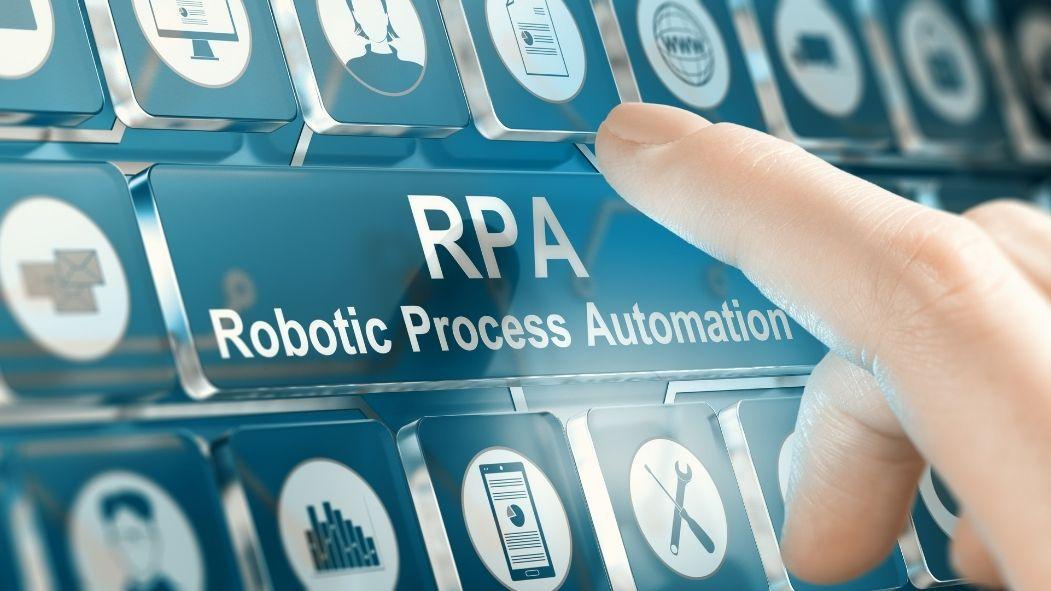The question of “is RPA too expensive for my business” is a good one. The short answer is, … can you really afford not to use RPA in your business (assuming conditions justify its use). If your business has a high volume of repetitive rules-based tasks that need to be accomplished on a daily, weekly or monthly basis it could be a good candidate for bots, RPA and automation. If you have well-defined stable processes that use multiple software applications and/or databases, you may also be a viable candidate for RPA and automation.
If a business wants to stay competitive, RPA is an excellent tool to offload work to and better utilize your human employees. In this blog post we will discuss RPA pricing models, how RPA can be self-funding. and finally, how to lower RPA costs. To cut to the end though, … the main ways that SMBs can lower RPA costs is to bring in experts up front to ensure there is an ROI, and then to either outsource the management of RPA or use an MSP to provide RPA as a service.
But before we get to that, let’s discuss RPA pricing models, and how RPA can be “self-funding”.
RPA Pricing Model
The cost of RPA and making an RPA investment can be a big deal for an SMB. SMBs do not have the same types of resources as larger enterprises, but they have almost all the same challenges. To deploy RPA the way most large enterprises do means engaging with a software vendor and working with consultants and integrations specialists to implement a project.
Afterwards companies will engage with a BPO, or business process outsourcing firm to offshore the management of an RPA platform, or hire their own employees at considerable expense to manage their RPA platform and to create a COE or Center of Excellence for RPA projects.
Some of the cost of RPA projects will include yearly RPA license fees from software vendors, infrastructure set up fees from vendors or integrators, ongoing maintenance costs, training and hiring of internal SME (subject matter experts), consulting costs to implement projects, and hard to account for “break fix cycles” that reduce ROI but are part of the overall services provided. An MSP for RPA can bypass all of this and can be a better way for SMBs to get started and to leverage RPA … but more on that soon.
RPA is Self-Funding
One of the best things about RPA cost savings is that they more than fund the costs of many typical RPA projects. For this reason, any RPA investment is an investment in a business. In our blog, Why Should a Business Implement RPA we highlight some of the main benefits of RPA which include, saving money, improving accuracy, increasing productivity, improving compliance, and gaining better analytics and insights. Improved customer insights, improved customer experience, and consistent data collection are additional benefits of RPA.
These are all excellent reasons for making an RPA investment. RPA ROI is often measured in FTE or full-time equivalents. When approaching any RPA project and looking at the ROI, it should always be framed to answer the question of how many full-time workers will now not need to be brought on to accomplish a particular repetitive task, and how many current human resources can be freed up in a company to do other higher value more productive work.
The cost of an RPA bot is typically 1/3 of a human worker who would be required to do the same job full time. It is by looking at RPA projects through this lens that they can be determined to be self-funding.
How to Lower RPA Costs
The best way that an SMB can lower the cost of RPA and RPA investment is by bringing in expert counsel upfront. Bringing in an SMB focused consultant like Valenta can help ensure that the value of a project is validated up front and that a proper ROI can be achieved.
If the proper return on an RPA investment can not be achieved a knowledgeable consultant can look for other ways to optimize business processes (outsourcing for example). If an attractive ROI for an RPA project can be achieved, expert consulting from companies like Valenta will help to guarantee a successful project. Valenta can also provide contracted or outsourced COE / Center of Excellence for ongoing RPA management.
However, perhaps the absolute best way to lower the cost of RPA is to utilize an MSP for RPA. Valenta is also an RPA MSP and can provide RPA in a SaaS / software as a service model where a reasonable set up fee and ongoing monthly subscription fee are all that is paid by an SMB. This flexible and cost-effective way to roll out RPA at an SMB provides no obstacle to utilizing RPA and puts SMBs on the same footing as larger enterprises when it comes to digital transformation. Please refer to our blog, “5 Reasons to Use a RPA Managed Service Provider” for more on this topic.
Conclusion
A recent Deloitte study found that 86% of companies improved productivity, 90% improved quality & accuracy, 92% improved compliance for regulations and documentation and that 59% achieved overall costs savings when they deployed RPA. Concerning that 59%, … that was achieved despite the bloated costs associated with large consulting firms like Deloitte. Our experience is that cost savings are dramatically higher when SMBs use a managed service provider. The redeploying of human workers once they are freed from repetitive non-productive tasks can have exponential benefits to today’s SMBs operating in the Information Economy. To find out more about the cost of RPA, RPA investment, and RPA cost savings please contact Valenta here Contact us

